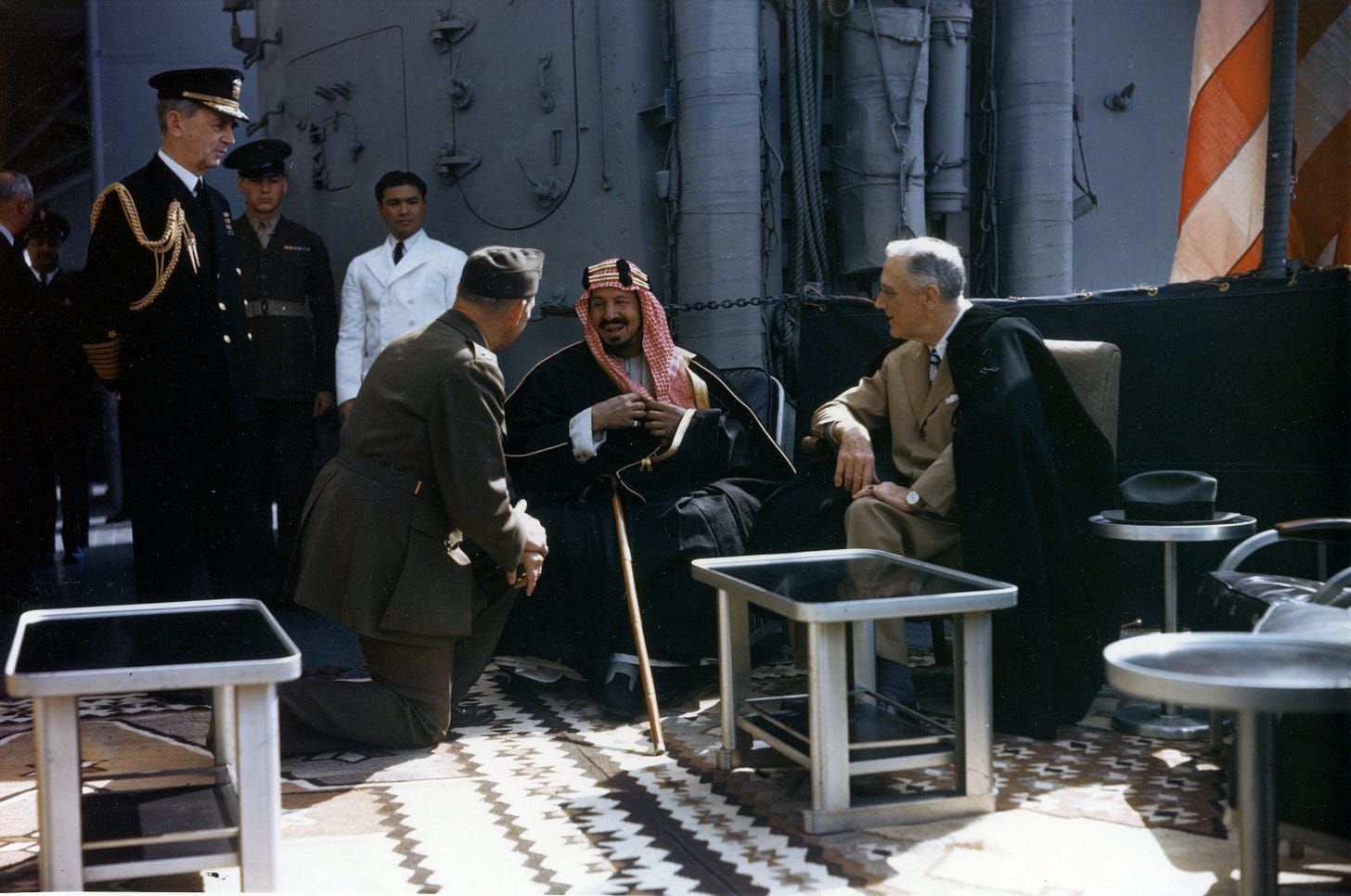World roundup: February 14 2024
Stories from Israel-Palestine, Indonesia, Russia, and elsewhere
Happy Valentine’s Day to those who are celebrating!
TODAY IN HISTORY
February 14, 1876: Alexander Graham Bell files a patent application for the telephone on the same day when Elisha Gray filed a patent caveat for a similar technology. The US Patent Office later informed Gray of the conflict and he withdrew his caveat, which was less an application than a notification of an intent to file an application and therefore wasn’t as far along as Bell’s claim. Gray later won a court decision finding that the information in his caveat was leaked to Bell and some of it appeared in the latter’s application, but nevertheless Bell became known as the inventor of the telephone and Gray, uh, didn’t.
February 14, 1943: The World War II Battle of Sidi Bouzid begins.
February 14, 1945: Franklin Delano Roosevelt hosts Saudi King Abdulaziz ibn Saud aboard the USS Quincy in the Mediterranean. Roosevelt was sailing home from the Yalta Conference and took the occasion to hold face-to-face meetings with several regional leaders. This one was the first meeting ever between a Saudi royal and a US president. The agreement they concluded (which offered US military protection to the Saudis in return for US access to Saudi oil) created the basic contours of a US-Saudi relationship that has survived (albeit with some rough patches) to the present day.
INTERNATIONAL
A new study published in the journal Science on Wednesday suggests that severe weather due to climate change has been and will continue contributing to the frequency, severity, and geographic extent of locust outbreaks around the world. I’m not sure this qualifies as “new information” so much as confirmation of a trend that already seemed apparent, but regardless it’s nice to know that the apocalypse will, in fact, involve actual locusts.
MIDDLE EAST
ISRAEL-PALESTINE
Israeli Prime Minister Benjamin Netanyahu isn’t letting domestic and/or international pressure to “consider all the options,” “prioritize recovering hostages,” or “try not to starve a whole bunch of kids to death” get in the way of his plans for the Gazan city of Rafah. In a message posted to Telegram on Wednesday the Israeli leader promised “a powerful action” in the city that’s now home to hundreds of thousands of displaced civilians “after we allow the civilian population to leave the battle zones.” Readers may want to guess which part of that statement—the powerful action or the civilian evacuation—Netanyahu actually intends to fulfill. To be fair, Netanyahu’s statement does augur some advance period before the Israeli military (IDF) begins an earnest ground assault, and it’s possible his escalating rhetoric is meant to put pressure on Hamas to agree to Israeli terms around a potential ceasefire. But since one of those terms is “this ceasefire will not be permanent” I think we can take him at his word that Rafah is eventually going to be decimated.



